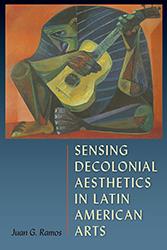Much has been made of the dramatic rise of Protestantism in Latin America. Many view this as a sign that Catholicism’s primacy in the region is at last beginning to wane. Overlooked by journalists and scholars has been the parallel growth of Charismatic, or Pentecostal, Catholicism in the region. Edward Cleary offers the first comprehensive treatment of this movement, revealing its importance to the Catholic Church as well as the people of Latin America.
Browse by Subject: Latin American Studies
Please note that while you may order forthcoming books at any time, they will not be available for shipment until shortly before publication date
Exploring a variety of topics including European colonialism, migration, citizenship, sex tourism, music, literature, and art, contributors demonstrate that alternate views of Haitian and Dominican history and identity have existed long before the present day. From a moving section on passport petitions that reveals the familial, friendship, and communal networks across Hispaniola in the nineteenth century to a discussion of the shared music traditions that unite the island today, this volume speaks of an island and people bound together in a myriad of ways.
This book reveals how migrants shape the politics of their countries of origin, drawing on research from Mexico, Colombia, and Ecuador and their diasporas, the three largest in Latin America. Luis Jiménez discusses the political changes that result when migrants return to their native countries in person and also when they send back new ideas and funds—social and economic “remittances”—through transnational networks.
The contributors to Rural Social Movements in Latin America include academic researchers as well as social movement leaders who are seeking to effect change in their countries and communities. As a group they are at the forefront of some of the most critical environmental, social, and political issues of the day.
Although one of Latin America’s most significant postwar art movements, Nueva Figueración has long been overlooked in studies of modern art. In this first comprehensive examination of the movement, Patrick Frank explores the work of four artists at its heart--Ernesto Deira, Rómulo Macció, Luis Felipe Noé, and Jorge de la Vega--to demonstrate the importance of their work in the transnational development of modern art.
In these often-overlooked centuries, Martínez-Fernández finds the roots of many of Cuba’s enduring economic, political, social, and cultural complexities. The result is a sweeping history, a seminal text that makes clear that to fully grasp revolutionary or contemporary Cuba we must first understand what came before.
Between April and September 1980, more than 125,000 Cuban refugees fled their homeland, seeking freedom from Fidel Castro’s dictatorship. They departed in boats from the port of Mariel and braved the dangerous 90-mile journey across the Straits of Florida. Told in the words of the immigrants themselves, the stories in Voices from Mariel offer an up-close view of this international crisis, the largest overseas mass migration in Latin American history.
Juan Ramos uses “decolonial aesthetics,” a theory that frees the idea of art from Eurocentric forms of expression and philosophies of the beautiful, to examine the long decade of the 1960s in Latin America—a time of cultural production that has not been studied extensively from a decolonial perspective.
Telling Migrant Stories explores how contemporary documentary film gives voice to Latin American immigrants whose stories would not otherwise be heard.











